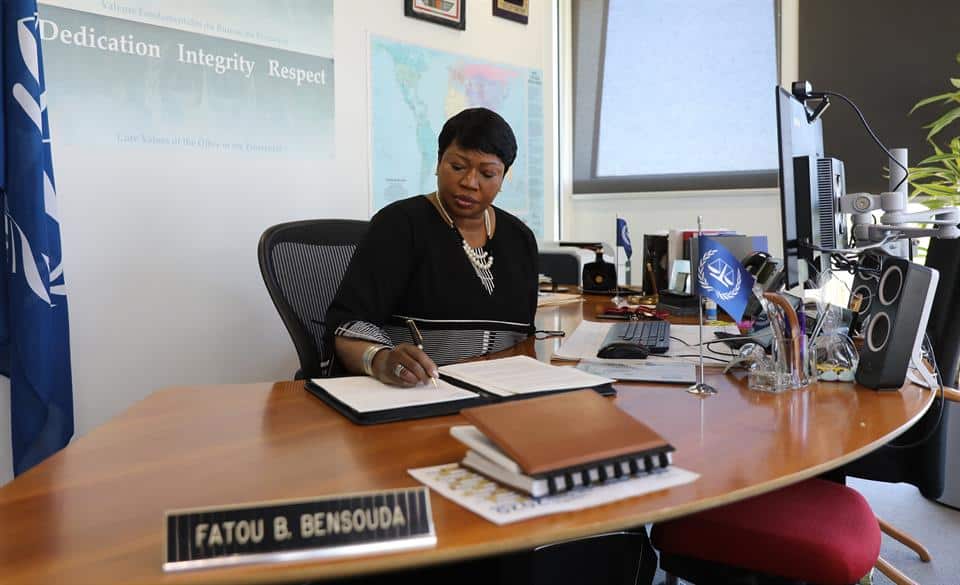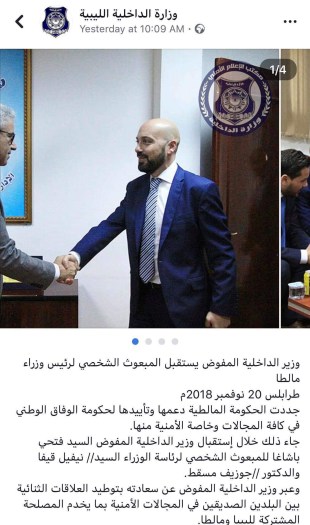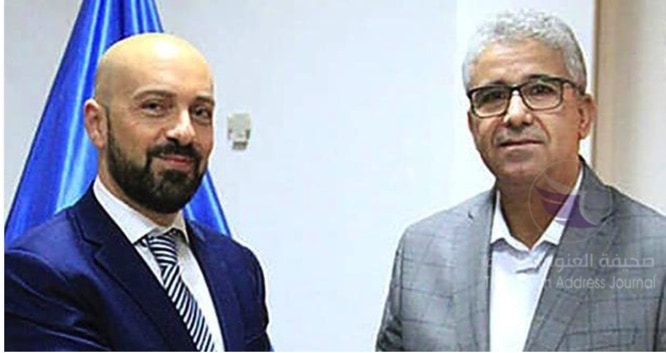International Criminal Court Prosecutor Fatou Bensouda yesterday reported to the United Nations Security Council on the situation in Libya describing the treatment of migrants detained there.

“My Office is aware of allegations of serious violations in many prisons and detention facilities throughout Libya,” including facilities under the authority of the Ministry of Interior of the Government of National Accord. This is the authority with which Malta’s special envoy Neville Gafà was seen conducting secret negotiations he later revealed were intended to prevent migrants from leaving Libya to come to Malta and to push back those who manage to start the journey.

Neville Gafà being received for official talks at Libya’s Interior Ministry on an officially stamped government announcement.

With Interior Minister of the Tripoli-based government, Fathi Bashagha. Source: The Libyan Address
57 migrants have been pushed back from Malta’s search and rescue area by order of the Maltese government. They were dispatched to Libya on Thursday 16th April after 7 days at sea. They are now believed to be detained in the prison of Tarek al Sikka in Libya.
The UN prosecutor said the issue of arbitrary detention and serious mistreatment of migrants and refugees attempting to transit through Libya “is a grave and persistent problem”. The prosecutor said she was exchanging evidence and information with relevant states and organisations to support investigations and prosecutions in domestic jurisdictions.
“Latest figures indicate that the detention of persons without due process is widespread. Many people are being detained without lawful basis or denied their fundamental procedural rights. Persons detained without the proper protection of the law are at greater risk of serious forms of mistreatment, including murder, torture, rape and other forms of sexual violence.”
Fatou Bensouda said her office has information “that such crimes are all too common. Former detainees report brutal methods of torture. Detention-related victims of rape and other forms of sexual violence include men, women and children. Detainees have died from injuries sustained through torture, and from the failure to provide proper and timely medical care.”
This report continues to pile evidence that in engaging Neville Gafà to negotiate with the Tripoli authorities for the detention and forced return of migrants, both Joseph Muscat and Robert Abela concluded agreements with people and authorities identified by the International Criminal Court for persistent abuses and criminal acts.
The 19th ICC report to the UN Security Council on Libya since the 2011 revolt says that “serious violence related to the armed conflict in Libya, particularly in and around Tripoli, has not abated with a high numbers of civilian casualties resulting from airstrikes and shelling operations.”
The report also speaks of forced disappearances of dissidents.
Read the full report here: 19th-report-icc-otp-UNSC-libya-ENG